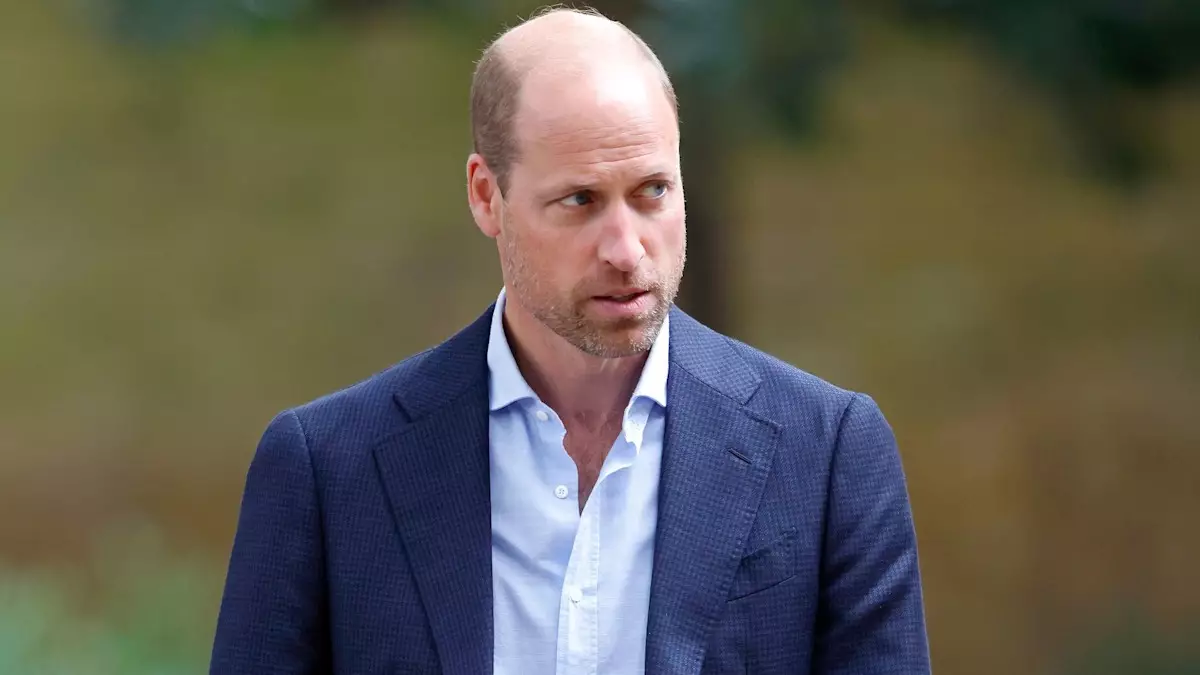In an era where tradition and modernity intertwine, the announcement that Prince William, the Prince of Wales, would represent the British monarchy at the Pope’s funeral symbolizes an essential evolution in royal duties. Set against the backdrop of global mourning, the selection of William conveys both deference to historic ties and an acknowledgment of the significant role that he will play as a future monarch. His attendance at this ceremony is a powerful reminder of how even long-standing institutions can adapt and reflect contemporary values while still honoring their history.
The choice of William echoes a tradition that dates back to previous generations of British royals, whereby representatives attend significant international events that resonate beyond their borders. This specific occasion, the funeral of Pope Francis, who passed away from a stroke at the venerable age of 88, highlights yet another moment of solemn reflection in global leadership. Prince Charles, his father, represented his mother, Queen Elizabeth II, at Pope John Paul II’s funeral in 2005. Such choices underline the monarchy’s acknowledgment of its place within a broader spectrum of world faiths and cultures, thus reinforcing the royal family’s role in fostering diplomatic relations.
A Gathering of Greatness
The funeral itself promises to be a convergence of international dignitaries, including heads of state and fellow royals. The presence of King Felipe and Queen Letizia of Spain, along with King Philippe and Queen Mathilde of Belgium, speaks volumes about the significance of this moment, transcending national boundaries. Beyond the royal families, United Kingdom’s Prime Minister Keir Starmer and global leaders like US President Donald Trump and French President Emmanuel Macron will also partake in this ceremonial farewell, showcasing that the Pope’s influence reached far beyond religious circles.
This assembly, not merely a gathering of power, also represents shared grief for an individual who dedicated his life to uplifting marginalized communities and promoting acts of kindness. Even staunch political adversaries come together to honor one who preached unity and compassion, signaling how influential figures can forge connections that challenge partisan divides. While the political implications of such attendance cannot be ignored, it remains profoundly human to honor those who have touched lives, irrespective of personal ideologies.
Reflections on Faith and Compassion
The heartfelt statements from King Charles II following the Pope’s passing are indicative of a deeply personal loss felt not only by those within the Catholic Church but by individuals worldwide inspired by the Pope’s profound works. His words ring with sincerity as he reflects on shared moments of connection and the impeccable kindness displayed by Pope Francis throughout his papacy. The remarks illuminate the universal impact the Pope had in advocating for tangible actions towards environmental sustainability and social justice, bridging gaps within and outside the Church.
In a world rife with divisiveness, the Pope’s teachings on care for creation and his commitment to communal welfare resonated with a vast audience. His belief that the act of caring for the environment is intrinsically linked to faith transcends religious boundaries, urging collective responsibility toward our planet. His passing leaves a void that will be felt in myriad ways by countless individuals—a sentiment poignantly captured by Charles’s expression of profound sympathy to the Church and to those mourning across the globe.
The Royal Family’s Role in Modern Mourning
The royal family’s engagement in such significant events symbolizes an evolving narrative around monarchy. It aligns with a contemporary understanding that those in positions of power and influence should actively participate in global conversations, especially during times of loss and reflection. While historically, royal attendance at the funeral of a pontiff was sparse—Queen Elizabeth II never attended such events—Prince William’s representation illustrates a shift towards embracing a more inclusive and relatable monarchy.
Undoubtedly, Prince William’s attendance solidifies his position as a future king who understands the value of global relations and the importance of being a person of the people. In an era where old traditions meet the realities of a connected world, this event serves to remind us that even symbols of antiquity—like monarchies—can signify unity and shared humanity in the face of loss. His participation is not just ceremonial; it represents a testament to building bridges across faiths, cultures, and nations, maintaining the relevance of the monarchy in a modern context.

